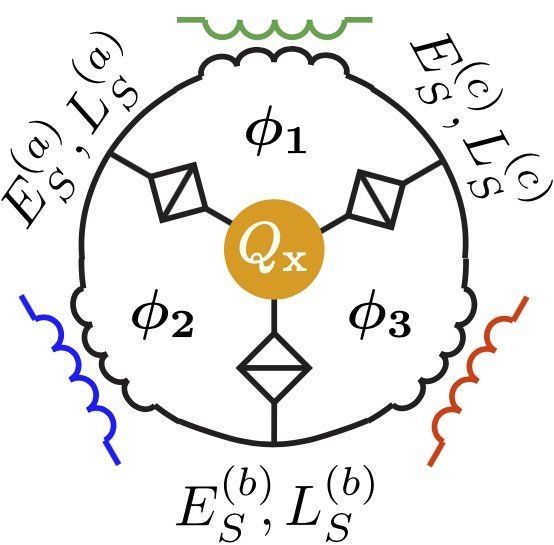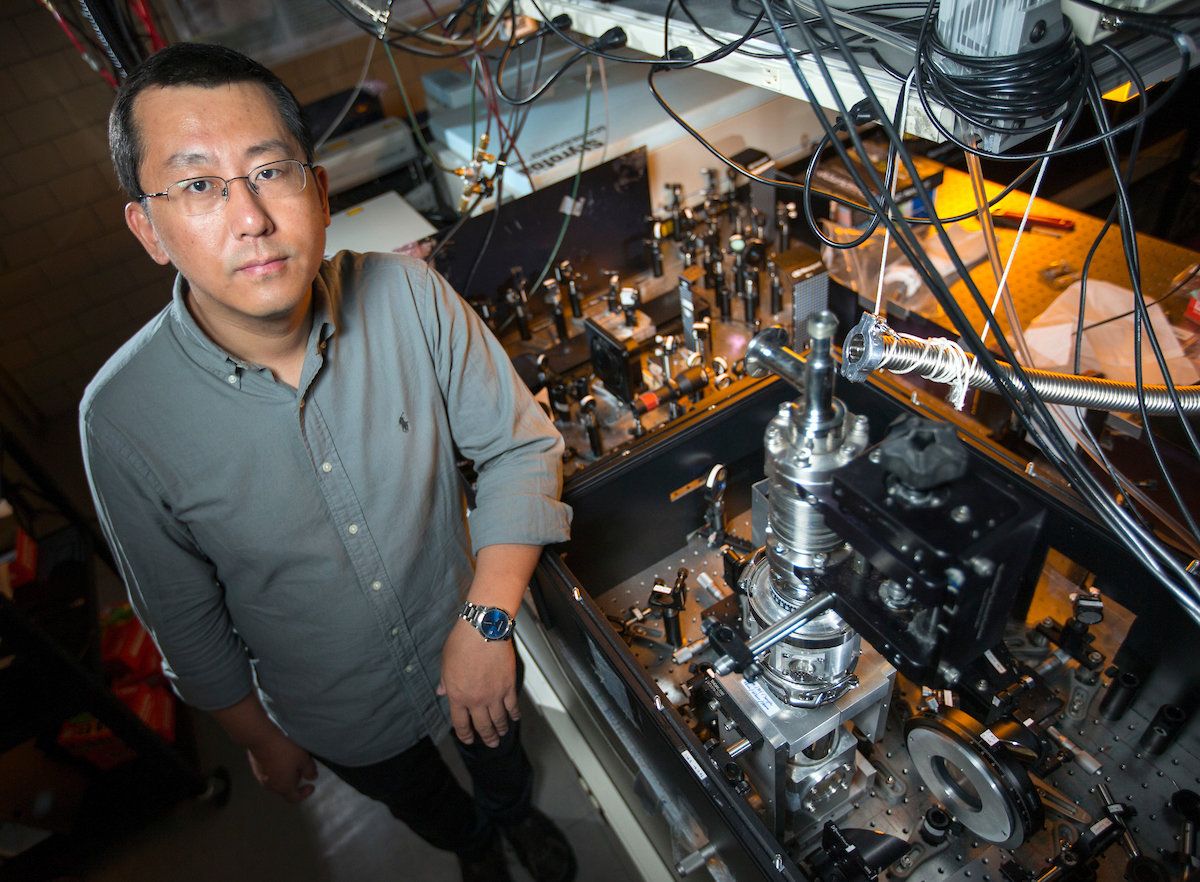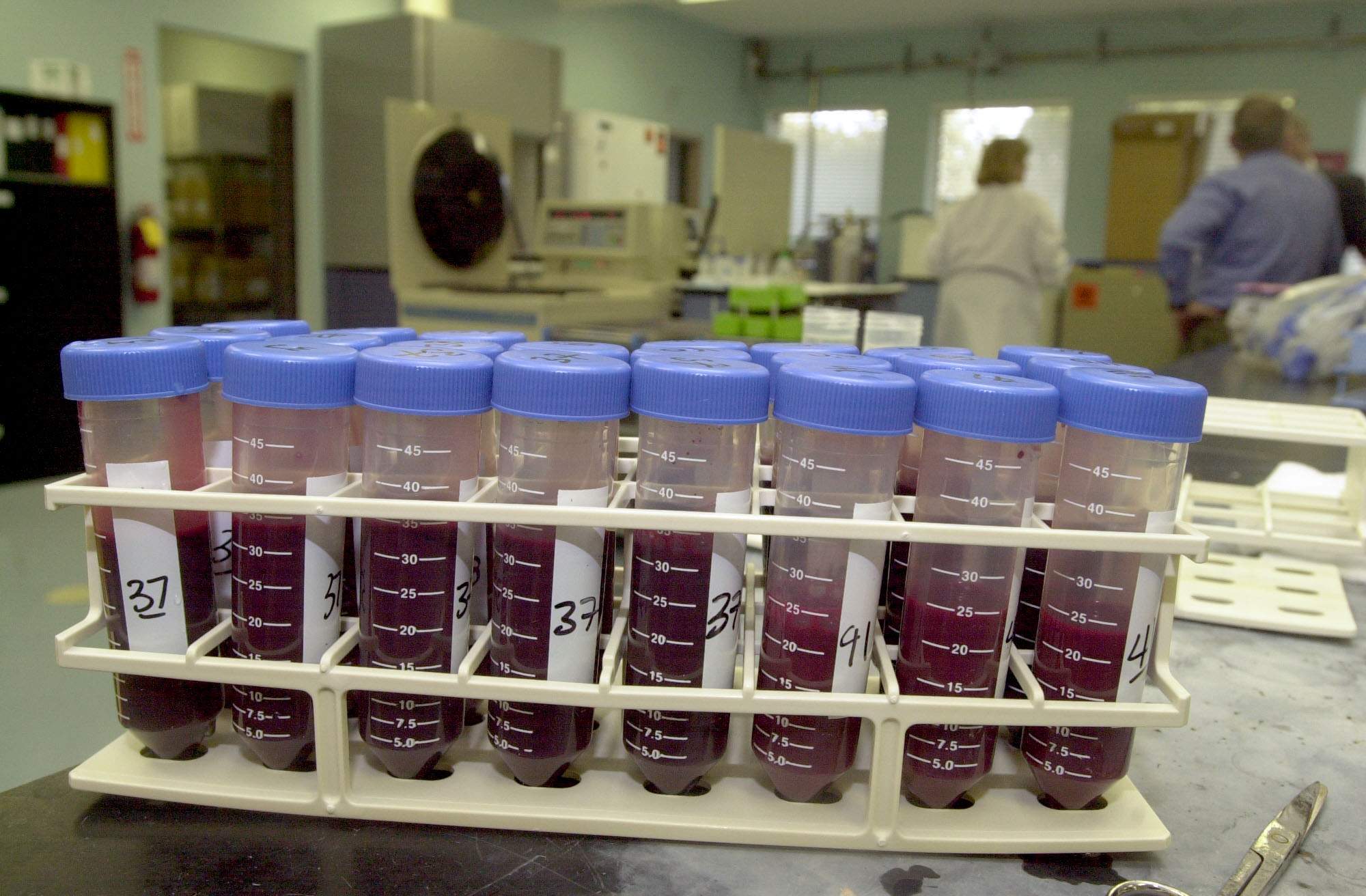Page 9689
Jun 5, 2018
Milestone immunotherapy treatment cures terminal breast cancer patient
Posted by Genevieve Klien in category: biotech/medical
A recently published case study from an ongoing clinical trial has revealed an experimental immunotherapy treatment has cured a breast cancer patient. The 49-year-old patient with advanced breast cancer was given three months to live before enrolling into the trial. Within weeks her tumors had disappeared and 22 months later she is still in complete remission.
The treatment being trialed is a modified form of what is called adoptive immunotherapy. The technique generally works by harvesting a person’s immune cells. Once collected, the cells are armed with cancer-recognizing molecules so that when they are reintroduced into the patient’s body they can home in on the tumors and kill them off.
This form of immunotherapy has frustratingly been inconsistent in early clinical trials, working well with some patients on certain cancers but proving less effective on others. In particular, the treatment hasn’t been hugely successful in treating common epithelial cancers. These cancers tend to harbor lower levels of mutations that are fundamental to programming the immune cells to hit their targets.
Jun 5, 2018
Doctors hail world first as woman’s advanced breast cancer is eradicated
Posted by Genevieve Klien in category: biotech/medical
Immune cells from the woman’s own body used to wipe out tumours.
Mon 4 Jun 2018 11.00 EDT Last modified on Mon 4 Jun 2018 19.55 EDT.
Continue reading “Doctors hail world first as woman’s advanced breast cancer is eradicated” »
Jun 4, 2018
Best of last week: Flux capacitor invented, a better 3D printer and the true benefits of vitamins
Posted by Shane Hinshaw in categories: 3D printing, biological, cosmology, genetics, health, quantum physics, space travel
It was a good week for physics as a team with members from Australia and Switzerland invented a flux capacitor able to break time-reversal symmetry. They proposed a device based on quantum tunneling of magnetic flux around a capacitor. And another team with members from across the U.S. reported on a gravitational wave event that likely signaled the creation of a black hole—the merger of two neutron stars.
In biology news, a team of engineers led by Sinisa Vukelic invented a noninvasive technique to correct vision. Like LASIK, it uses lasers but is non-surgical and has few side-effects. And an international team of researchers found what they describe as the mother of all lizards in the Italian Alps, the oldest known lizard fossil, from approximately 240 million years ago. Also, a team at the University of Sydney found that walking faster could make you live longer. People do not even need to walk more, the team reported, they just need to pick up the pace of their normal stride to see an improvement in several health factors. And a team from Cal Poly Pomona discovered how microbes survive clean rooms and contaminate spacecraft—and it involved the cleaning agents themselves.
In other news, a team of researchers from the University of California and the University of Southern Queensland announced that they had identified 121 giant planets that may have habitable moons. And a team at Stanford University found that wars and clan structure might explain a strange biological event that occurred 7,000 years ago—male genetic diversity appeared to collapse for a time. Also, a team of researchers from MIT and Harvard University report the development of a 3D printer that can print data sets as physical objects—offering far more realistic, nearly true-color renderings.
Jun 4, 2018
Physicists use terahertz flashes to uncover state of matter hidden
Posted by Genevieve Klien in categories: computing, quantum physics
Using the physics equivalent of the strobe photography that captures every twitch of a cheetah in full sprint, researchers have used ultrafast spectroscopy to visualize electrons interacting as a hidden state of matter in a superconductive alloy.
It takes intense, single-cycle pulses of photons—flashes—hitting the cooled alloy at terahertz speed—trillions of cycles per second—to switch on this hidden state of matter by modifying quantum interactions down at the atomic and subatomic levels.
And then it takes a second terahertz light to trigger an ultrafast camera to take images of the state of matter that, when fully understood and tuned, could one day have implications for faster, heat-free, quantum computing, information storage and communication.
Continue reading “Physicists use terahertz flashes to uncover state of matter hidden” »
Jun 4, 2018
The Birth of Wetware
Posted by Marcos Than Esponda in categories: employment, neuroscience
I t’s an odd thing for someone to say about neurons: “Let’s see if anyone is awake.” And it’s an even odder thing to hear in a cavernous, half-furnished office suite where one whole room is occupied only by copy machines and a lonely foosball table.
Not far from that foosball table, Oshiorenoya Agabi and Benjamin Sadrian are sitting in a lab at their startup, Koniku, in Berkeley, California. Agabi founded the company, and Sadrian is a senior neuroscientist. They are toggling between a microscope and a screen full of blue graphs, looking for signs of activity in a cluster of neurons. Sadrian pauses as he scrolls through slightly fuzzy readouts on the screen, reminiscent of stock charts with buzz cuts. “I wish you’d come later, even tomorrow,” he sighs.
These readouts measure signals inside cells, and Agabi and Sadrian are looking for spikes that would show Koniku’s neurons reacting to a chemical Sadrian exposed them to moments ago. When we examined them under the microscope, they glowed a faint neon green, which indicates they’re starting to mature. A few tentative dendrites reached out into the void, the neurons just beginning to form connections with one another. But the telltale spikes don’t materialize on the screen. At just six days old, these neurons are still too young to do the jobs they’ve been engineered to do.
Jun 4, 2018
Nonprofit Wants to Map Lunar Heritage Sites Using Blockchain
Posted by Genevieve Klien in categories: bitcoin, finance, law, space

Yellowstone National Park, The Dolomites, Auschwitz Birkenau, The Great Wall … Apollo 11’s Tranquility Base?
For All Moonkind and TODAQ Financial have teamed up to map heritage sites on the Moon—using blockchain.
Continue reading “Nonprofit Wants to Map Lunar Heritage Sites Using Blockchain” »
Jun 4, 2018
There Are No Laws of Physics. There’s Only the Landscape
Posted by Genevieve Klien in categories: mathematics, physics
Scientists seek a single description of reality. But modern physics allows for many different descriptions, many equivalent to one another, connected through a vast landscape of mathematical possibility.
Jun 4, 2018
Oldsmar’s Cryo-Cell buys Orlando cord blood bank for $14 million
Posted by Genevieve Klien in categories: biotech/medical, business, finance
OLDSMAR Cryo-Cell International, the local company that was the first private cord bank to separate and store stem cells, has acquired a public cord blood bank company based in Orlando for $14 million.
Cryo-Cell announced the acquisition of CORD: USE on Monday. The sale propels Cyro-Cell into the public cord blood banking business. Cryo-Cell co-CEO David Portnoy said the purchase will raise revenues by about 20 percent.
Cryo-Cell was founded in 1989 and now holds the stem cells of more than 500,000 families from 87 countries, according to the company. CORD: USE has agreements with hospital across the country to receive donations from mothers of babies chord blood while also storing families stem cells.
Continue reading “Oldsmar’s Cryo-Cell buys Orlando cord blood bank for $14 million” »

















